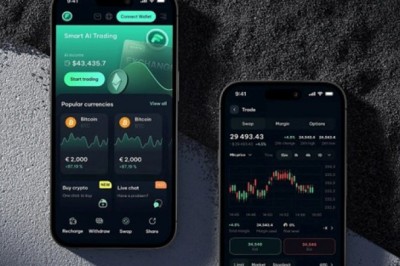views
Two of the most discussed routes to global mobility are Citizenship by Investment (CBI) and Digital Nomad Visas (DNVs). This article explores these two pathways, emphasizing the strength and structure of Caribbean CBI programs—especially the highly regarded Grenada CBI—and how they compare with short-term Digital Nomad Visas.
Understanding Citizenship by Investment
Citizenship by Investment allows individuals to acquire citizenship in another country through a qualifying economic contribution. Rather than years of residency or language tests, investors can achieve full citizenship—complete with a passport—within a few months.
Most programs are structured around one or more of the following:
- Government Fund Contributions: A non-refundable donation to a national development or sustainability fund.
- Real Estate Investment: Purchase of approved property with a defined holding period, usually three to seven years.
- Business Investment: Direct investment into government-sanctioned enterprises or startups that stimulate local employment.
Globally, only a limited number of countries still operate legitimate CBI programs. While Europe has largely phased them out due to regulatory pressure, five Caribbean nations—Grenada, St. Kitts and Nevis, Dominica, Antigua and Barbuda, and Saint Lucia—continue to offer transparent, efficient, and internationally respected programs.
These Caribbean Citizenship by Investment options are favored for their relatively low investment thresholds, fast processing, and extensive visa-free travel privileges.
Overview of Caribbean Citizenship by Investment
Every Caribbean nation offers slightly different advantages, but they all share the same underlying strengths: affordability, legal certainty, and global mobility. Below is a closer look at each:
Grenada CBI
- Minimum Investment: US$235,000 (government donation) or real estate in Grenada starting at US$270,000
- Processing Time: Around 4–6 months
- Visa-Free Access: Over 140 destinations, including the UK, Schengen Zone, China, India, Russia, and Brazil
The Grenada CBI program stands out for its exclusive access to the United States E-2 Investor Visa, allowing resident citizens to live and operate businesses in the U.S.—a benefit no other Caribbean program offers. Moreover, real estate in Grenada remains one of the most popular qualifying routes, combining investment potential with the opportunity for Caribbean property ownership.
Antigua and Barbuda
- Minimum Investment: US$230,000 donation or US$325,000 in real estate
- Processing Time: 3–4 months
- Travel Access: 150+ countries, including Europe and Asia
St. Kitts and Nevis
- Minimum Investment: US$250,000 donation or US$400,000 in real estate
- Processing Time: 4–6 months
- Access: 150+ visa-free destinations
- Note: The world’s oldest and most established CBI program.
Dominica
- Minimum Investment: US$200,000 donation or real estate purchase
- Processing Time: 3–4 months
- Visa-Free Access: 140+ countries
- Reputation: Among the most affordable and transparent options globally.
Saint Lucia
- Minimum Investment: US$240,000 donation or US$300,000 in real estate
- Processing Time: 4–6 months
- Visa-Free Access: 140+ countries
Digital Nomad Visas: Mobility Without Permanence
Digital Nomad Visas (DNVs) have emerged as the post-pandemic counterpart to CBI programs. They cater to remote professionals who wish to live abroad while working online for companies or clients outside the host country.
Caribbean countries such as Antigua and Barbuda, Barbados, and the Bahamas now offer DNVs that allow stays of up to 12–24 months. These visas typically require proof of stable income (often between US$50,000 and US$100,000 per year) and health insurance coverage.
However, while DNVs provide flexibility and lifestyle advantages, they remain temporary by design:
- No direct path to permanent residency or citizenship
- Limited integration into the host country’s economy or society
- Often viewed as tourism extensions rather than migration policies
In short, a Digital Nomad Visa provides a temporary solution for location-independent work but lacks the permanence and privileges of Caribbean CBI.
CBI vs. DNV: Key Differences
- Legal Status: CBI grants full citizenship and a passport while DNV offers only a temporary stay.
- Duration: CBI is permanent and inheritable while DNVs usually last 6–24 months.
- Investment Requirement: CBI requires a qualifying economic investment (donation, real estate in Grenada, or similar) while DNVs require proof of steady income.
- Path to Citizenship: CBI leads directly to citizenship while DNVs do not provide a pathway to permanent status.
- Mobility Benefits: CBI offers visa-free travel to 140–150+ countries while DNV holders rely on their original passport.
Slomadism: The Middle Ground
A newer lifestyle trend—“slomadism”—combines the flexibility of remote work with longer stays and gradual integration. “Slomads” may start with DNVs, explore regions, and then transition to residency or citizenship through programs like CBI. In Europe and Latin America, countries such as Portugal, Spain, Ecuador, and Uruguay now offer clear pathways from long-term visas to citizenship. By contrast, the Caribbean focuses on either short-term nomad stays or direct citizenship—no intermediate stage.
Choosing the Right Path
Selecting between a Digital Nomad Visa and a Caribbean CBI depends on your priorities:
- Choose Citizenship by Investment if you seek permanence, asset diversification, and global access.
- Choose Digital Nomad Visas if you prioritize short-term lifestyle freedom without long-term commitment.
For many, combining both works best—using DNVs for exploration and CBI for settlement and protection. And among the CBI options, Grenada CBI continues to attract international investors for its balanced pricing, strong passport, and thriving opportunities in real estate in Grenada.
Conclusion
In the evolving landscape of global mobility, Citizenship by Investment Countries offer investors not just a passport but also the enduring security that comes with a second citizenship.
























Comments
0 comment